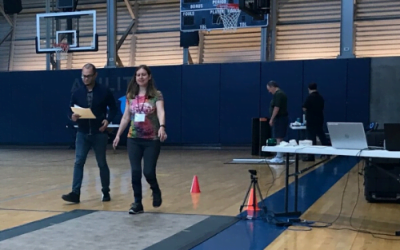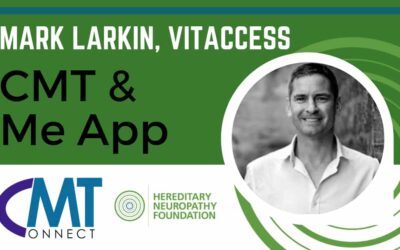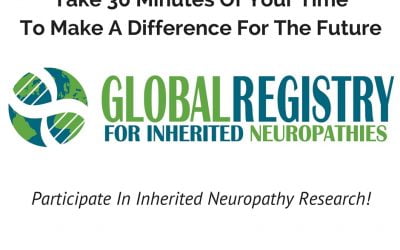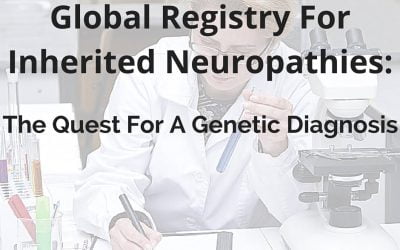In June, CMT researchers, clinicians, industry leaders and patient advocacy group leaders met in Copenhagen, Denmark for the annual Peripheral Nerve Society meeting. The Hereditary Neuropathy Foundation’s Global Registry for Inherited Neuropathies (GRIN) was the center of attention during the poster presentation by the team at Hackensack Meridian Health.
Their study aimed to evaluate the impact of neuropathic pain on the psychosocial well-being of individuals with Charcot-Marie-Tooth (CMT) disease, a hereditary neuropathy. In summary, this study highlights the significant impact of neuropathic pain on the quality of life and psychosocial well-being of individuals with CMT. It also emphasizes the importance of addressing pain management strategies and promoting interprofessional care to improve patient outcomes.
Here are the key findings and conclusions:
- Neuropathic Pain in CMT: The majority of patients with CMT experience mild to moderate neuropathic pain at least once per week. Neuropathic pain was found to be a significant contributor to the disease burden reported by patients.
- Pain Severity and Quality of Life: Pain severity was associated with diminished life satisfaction and increased social isolation. Participants with more severe, neuropathic-type pain reported lower life satisfaction and higher levels of social isolation. Life satisfaction scores decreased with increasing pain severity.
- Exercise Engagement: Participants with pain reported lower engagement in daily exercise compared to those without pain. Respondents with pain reported 10% lower engagement in more than 30 minutes of daily exercise.
- Opioid Use: High rates of opioid use for neuropathic pain were observed among the survey population, with 27.2% of patients reporting the use of opioids. This highlights the need for education and awareness regarding evidence-based pain treatment options.
- Interprofessional Treatment: The study suggests that interprofessional treatment of neuropathic pain may improve both psychosocial and physical outcomes in individuals with CMT.
- Gender and Pain: Females younger than 65 years old reported more severe pain compared to females older than 65 and males in both age groups.
- Prevalence of Neuropathic Pain: The majority of respondents (63.95%) experienced neuropathic-type pain based on the generated T-scores.
- Study Limitations: The self-reported diagnoses of CMT were not confirmed with genetic reports, potentially including individuals with misdiagnosed CMT in the study population.
- Future Directions: A second generation of the Global Registry for Inherited Neuropathies (GRIN) was commissioned to acquire more genetic reports, allowing for diagnostic confirmation and stratification by CMT subtype.
- The time is NOW to participate in CMT Research by completing the three *NEW* GRIN Surveys: Natural History Survey v2 + Lifestyle Survey + Medication Survey
HNF is happy to announce that the Global Registry for Inherited Neuropathies Natural History Study for Charcot-Marie-Tooth is now listed at clincialtrials.gov. ClinicalTrials.gov Identifier: NCT05902351














0 Comments